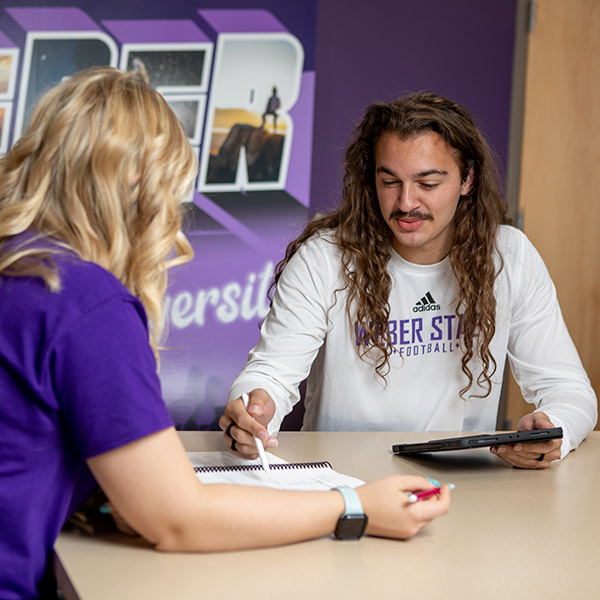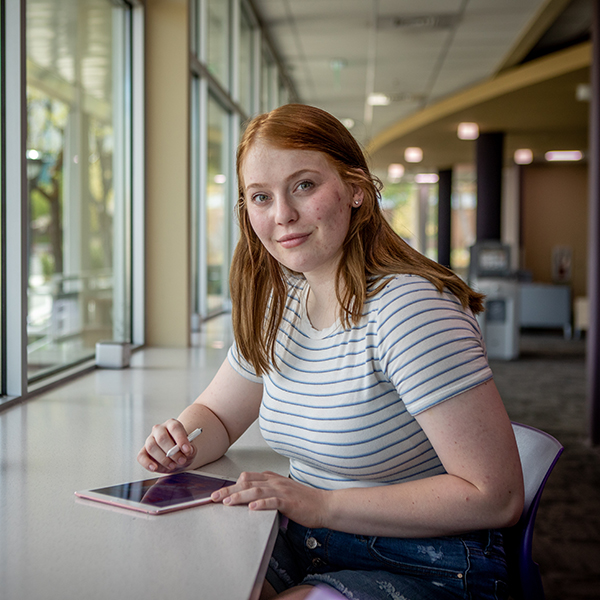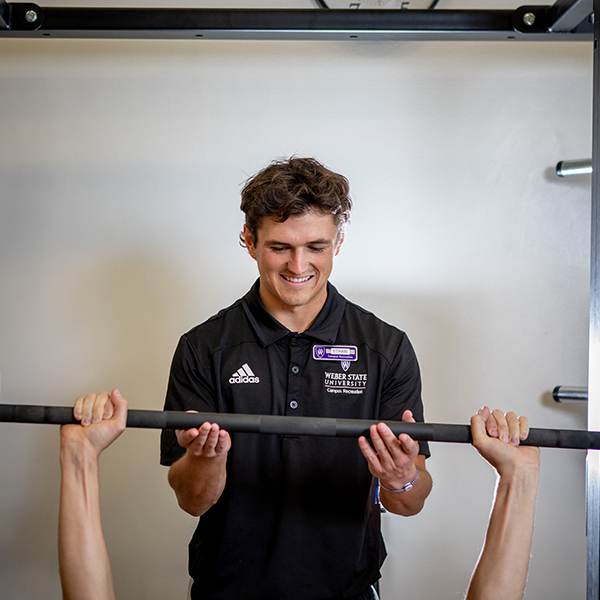
Student Services & Engagement
Featured Events
What You Need To Know Now
- Campus Safety: |
- Check your 91短视频 student email for important communications!
- IT Support Desk | Canvas Tech Support
- Complete your, which covers the aid year starting fall 2025 through summer 2026. Get Help
Registration Summer/Fall:
- Summer Semester:
- Schedule goes online March 17
- Registration begins for all on March 31
- First day of summer 2025 semester: May 5
- Fall Semester:
- Schedule goes online March 24
- View your registration time March 24
- Registration begins April 7
- First day of fall 2025 semester: Aug. 25
Graduating?
- by April 25, 2025.
- Apply by March 14 if you want your name in the commencement program.
- Grad Finale: April 1 & 2
Student Services
Registration Resources
- 91短视频
- What's Next
- New Student Orientation
- Math and English course placement
- Course Delivery Options
- Financial Aid and Scholarships
- Visit the Registrar’s Solution Center for questions regarding grades, transcripts, registration, academic deadlines, degree audits, graduation requirements and more.
- Register for Classes
- Drop Classes
Student Petition, Complaints & Grievances
91短视频 faculty, staff, and administrators work together to deliver quality courses and services. However, occasionally mistakes happen or misunderstandings occur. When problems or issues arise, there are avenues where you can voice a complaint, petition for a change, or make an appeal.
Get Help With Essentials
Need help with some of the essentials such as housing and food? You can also find help and resources for unemployment and food stamps.
Reporting
To report any crime or emergency, call the 91短视频 Police at 801-626-6460 or 911, or visit 91短视频 Police Department.
Students who experience or become aware of others who have experienced any form of discrimination, harassment, or sexual misconduct are encouraged to immediately report such behaviors to:
Office of Equal Opportunity
801-626-6240
91短视频 Ogden Miller Administration 102
oeo@weber.edu
For help responding to other non-emergency situations:
Dean of Students
801-626-7256
Miller Administration 317
deanofstudents@weber.edu
Safe@Weber
801-626-6090
safeatweber@weber.edu
University Housing
801-626-7275
1375 Village Loop Road
housing@weber.edu
Human Resources
801-626-6032
Miller Administration 111
hr@weber.edu
Quick Resources

Need Advisors or Mentors?
Work on Campus for Flexibility, Real-World Experience & Connections!

"I've gained meaningful relationships with students and professors."
- Brodie Taylor

"My boss wants me to succeed academically too!"
- Sydney Harris

"I have gained conversation skills that will benefit me in future careers."
- Ethan Harris

"It's helped me understand the processes that go on behind the scenes to benefit student experiences."
- Morgan Sanford
→Learn More About Student Employment
Internet and Digital Resources for Students
Resources for Internet:
- Accessing 91短视频 Wi-Fi
- offers discounts to low-income residents on the
- affordable internet for those who meet .
- Check with your local internet provider to see what services they are currently offering for college students.
91短视频 Free Software for Students:
How To Use:
Computer Literacy Courses
Weber State offers six free non-credit, online, self-paced courses for active 91短视频 students (and faculty/staff) to expand computer literacy skills. Courses include how to use a computer, Microsoft programs and more.
Campus Terms & Definitions
Academic Advising
Is guidance and support in degree planning, course selection, campus resources, and academic success that is provided by authorized, trained 91短视频 advisors representing one of 91短视频’s academic departments.
Academic Warning/Probation/Suspension
If your cumulative 91短视频 grade point average (GPA) falls below a 2.0, you will not be in “good academic standing.” If you do not bring your GPA back up to good standing, you will eventually be put on suspension. Seek help from campus resources, including your academic advisor.
Adjunct Faculty
Are contracted by 91短视频 to teach part-time.
Alumni
Are former 91短视频 students.
Articulation/Transcription
Is the process by which transfer courses are evaluated for equivalency to 91短视频 courses.
Associate’s Degree
Is an undergraduate academic degree awarded by colleges and universities upon completion of a course of study lasting approximately two years.
Bachelor’s Degree
Is an undergraduate academic degree awarded by colleges and universities upon completion of a course of study lasting approximately four to six years (depending on the institution and academic discipline).
Bursar’s Office
Is the financial office on campus. This is the office that sets up payment plans with students and works with billing and past due accounts.
Catalog Year
Indicates the academic year in which you were admitted or in which you declared your major and identifies the courses you need to complete and policies you need to follow to graduate. You have 3 years to complete an associate degree under a declared Catalog, and 6 years to complete a bachelor degree. If you do not complete your degree within that time frame, then you would need to be bumped up to the next active Catalog Year, and fulfill any different requirements of that newer Catalog Year.
CatTracks
Is 91短视频’s degree evaluation/audit tool available through your eWeber portal. This tool is a report of your progress toward major and degree completion. Consult your academic advisor for clarifications and explanations.
Convocation
Occurs in both the spring and the fall. In the spring, it complements Commencement (University graduation ceremony). Each 91短视频 college (e.g., Arts & Humanities) and interdisciplinary programs not housed within a 91短视频 college (e.g., General Studies and Bachelor of Interdisciplinary Studies) hosts a formal ceremony to celebrate graduation from that program. Convocations can also refer to the speaker series conducted through the Student Involvement and Leadership Department.
Co-curricular Experiences
Are those that a student participates in that are in addition to the normal course of study such as participating in a club or organization or watching a performing arts event.
Co-requisite
Refers to two courses that must be taken during the same semester.
Community Engaged Learning
Is an activity that involves a collaborative, reciprocal relationship with the community that prepares our students, faculty, staff, and alumni to be engaged citizens, strengthen democratic values and civic responsibility by addressing community issues.
Course Cancellation
Occurs if you drop a class by the cancellation deadline (usually during the first three weeks of a semester) and is deleted from your transcript. Depending on when you cancel, you may still owe tuition. View the Tuition Refund Schedule online to learn when full, partial, and no refunds will be granted
Course Withdrawal
If you drop a course by the withdrawal deadline around mid-semester, a “W” will appear on your transcript and does not affect your GPA. You will not be eligible for any tuition refund. Before withdrawing, contact your academic advisor and any funding sources you have so you are aware of the potential negative impacts of withdrawing before you do it.
Credit Hour or Credit
Is the term we use to represent the in-class time commitment. For a three-credit class, you’ll spend approximately three hours in that class each week. For every hour in class, you should spend at least two hours outside of class on homework and studying, but you may need significantly more time for some classes.
Deans
Are in charge of a 91短视频 area. At 91短视频 we have college deans (e.g., the Dean of the College of Science), a dean over Continuing Education and a dean of students.
Developmental Courses
Are courses that prepare you for subsequent university-level courses. These courses are not calculated into your overall Weber State GPA or your total credit hours.
Double Major
Refers to an undergraduate student who is completing two sets of degree requirements.
Education Record
Is any record directly related to a student which contains personally identifiable information and is maintained by 91短视频 or a party acting on behalf of 91短视频.
Elective Credits
Are courses that earn you credits but do not fulfill a major, minor, or general education requirement.
eWeber/Student Portal
Is 91短视频’s interface with online 91短视频 processes. Use the portal to register, pay tuition and fees, access online courses and your 91短视频 email account and much more.
Faculty Member
Refers to full-time college teachers although it is sometimes used to also include part-time college teachers.
FAFSA
Stands for The Free Application for Federal Student Aid. This form is required for any student who wants to be considered for federal aid of any kind (e.g., grants, loans, and work-study).
Fees
Are additional charges to students. There are many different fees including course fees and student fees. Student fees help to pay for many 91短视频 student services. Thanks to the student fees, most 91短视频 resources (e.g., the 91短视频 gym and most health services) are free to students.
Financial Aid
Is the funding (e.g., scholarships, grants, work-study, and loans) that helps you pay for school. Know the difference between aid that does not need to be paid back and funding that needs to be paid back without or with interest.
Full-time Students
Are registered for at least 12 credit hours during a given semester and are degree seeking. Note that the same tuition is charged for 11 - 17 credit hours. If you take more than 18 credits during a semester, additional tuition is charged. The full 91短视频 tuition table is published on the Bursar’s website and payment plans are also available.
Grade Point Average (GPA)
Is an overall measurement of your academic achievement in college and is calculated as the total number of grade points received over a given period divided by the total number of credits awarded.
Grants
Are similar to scholarships in that you don’t need to pay them back if you abide by their conditions. Grants are often awarded based on financial need or in support of research and other projects.
Hold
Is something placed against your account that can prevent you from registering for classes. There are three types of holds including financial, academic, and administrative. These can be placed for things like student conduct violations or failure to pay tuition and fees or other outstanding debts.
Hybrid Courses
Hybrid Courses at 91短视频 are taught through a combination of in-class and online instruction. Most 91短视频 hybrids are accelerated, meaning that students complete courses in half of a semester.
Instruction Types
- Face to Face: All instruction is in-person in a classroom. Assignments and homework may be required in Canvas.
- Face to Face Hybrid: Instruction is both in-person and asynchronous online via Canvas and other technology. Asynchronous means instruction is not delivered at set meeting times/days. Technology portion is at least 20% of class time or replaces one or more in-person meetings per week.
- Online: All instruction is asynchronous online. Asynchronous means instruction is not delivered at set meeting times/days. Work must be completed in Canvas by assigned deadlines. Distance students may register for these classes.
- Virtual: All instruction is in synchronous virtual format such as Zoom. Synchronous means students will meet at set times/days to receive instruction via videoconferencing. Assignments and homework may be required via Canvas, email, or other technology.
- Virtual Hybrid: Instruction uses both synchronous and asynchronous technology. Synchronous means students will meet at set times/days to receive instruction via videoconferencing such as Zoom. Asynchronous means instruction and assignments will also be delivered via Canvas or other technology not tied to set meeting times/days. At least 20% of course content will be asynchronous.
- Flex: Instruction is a mix of in-person and technology-assisted, which may include synchronous virtual and/or asynchronous online instruction. Synchronous means students will meet at set times/days to receive instruction via videoconferencing such as Zoom. Asynchronous means students will use Canvas or other technology not tied to set meeting times/days.
Internship
Is an experience that complements your academic learning by gaining work experience or satisfy requirements for a qualification.
Major
Refers to the main focus of your studies and will appear on your diploma. Up to half of your courses will be in your major.
Master’s Degree
Is awarded by a graduate school or department, usually to a person who has completed at least one year of graduate study.
Minor
Refers to the secondary focus of your studies, and usually requires fewer courses than your major. Some majors require a minor.
New/First Time Student
Students who have never attended any college or university will be classified as new freshmen. Included are students enrolled full-time in the fall term who attended college for the first time in the prior summer term, AND full-time or part-time students who entered with advanced standing (college credits earned before graduation from high school). Credit earned before graduation from high school includes Advanced Placement credit, CLEP credit, Early College credit and Concurrent credit. (PPM 6-2)
Office Hours
Are set regular times each week where professors meet with students and/or walk-in appointments throughout each semester they are teaching. Often, if you can’t make it to an instructor’s office hours, you can arrange to meet with him/her to schedule an alternative time.
Part-time Status
Means you are an associate and/or bachelor degree student registered for fewer than 12 credits during a semester. Note that for tuition purposes, part-time is defined as 10 or fewer credits. View 91短视频’s tuition table on the Bursar’s website for information on part-time versus full-time tuition costs.
Pre-requisite
Refers to a required course that you must successfully complete prior to being eligible to take another course or program.
Provost
Is the senior academic officer on campus
Registration
Refers to the process of signing up for your courses.
Residency Hours
Are credit hours taken through 91短视频. For a 91短视频 associate degree, you must complete a minimum of 20 credits through 91短视频. For a 91短视频 bachelor degree, the requirement is 30 credits.
Starfish
Provides you with a central online location to connect you to the people and services that can help you to be successful at 91短视频.
Student Loans
Are funds your school (or a bank, or even a relative) provides to you with the understanding that you will pay it back. For some loans, you don’t pay interest, for some, there is no interest until you graduate, and for some there are terms connected to post-graduation plans (e.g., some loans are forgiven over time for some teachers and doctors in some financing arrangements).
Supplemental Instruction (SI)
Is a type of group tutoring provided for some courses. SI’s are optional outside-of-class study sessions led by a student who previously succeeded in that course and is trained to lead study groups.
Syllabus
Is a written course outline provided by faculty to students in individual courses during the first week of the semester. It contains important course information including instructor contact information, course policies, learning outcomes and schedule.
Transcript
Refers to your 91短视频 student academic record that is updated after your final course grades are posted each semester. You can print an unofficial transcript through your eWeber Student portal or order an official transcript from the Records Office.
Transfer Student
Applicants who have attended another college or university, including former Weber State students who have since attended another college or university. (per PPM 6-2)
Tuition
Is the cost of your classes. Tuition is based on the number of credits for which you are registered. There is a per-credit cost for part-time studies (1-10 credits), a full-time tuition cost (11 to 18 credits), and overload tuition (19 and more). Student fees are charged in addition to tuition to support student support services and student government.
Utah HB 144
Is a State law that passed in 2002. HB 144 allows qualifying undocumented and DACAmented students to pay in-state tuition, the same rate as Utah residents if they attend a Utah college or university.
Wildcard
Is your Weber State ID card. It allows you access to services such as the library and gym. It also allows you access and discounts to special events.
Work Study
Is part of Federal financial aid, and you may secure an on-campus position (a small number are off-campus) specifically designated as work study. Your earnings and number of work hours are determined by your specific award.
@WeberStateStudentLife





